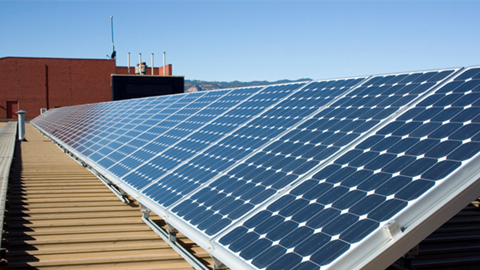Only 15% of listed real estate companies worldwide have set net zero targets on scope 1-3 emissions by 2050, according to new research.

This despite the fact that the real estate sector - both listed and privately owned - contributes to approximately 40% of total greenhouse gas (GHG) emissions.
The report by Van Lanschot Kempen Investment Management reveals however that the total number of firms is up from 10% last year.
The research reveals that Europe leads the way with 31% of listed real estate companies setting net zero targets on all three scopes compared with 14% in Asia and only 8% in North America.
The research
Around 39% of listed real estate companies report on scope 1 and 2 emissions, unchanged from the inaugural report last year, although the proportion which measure and report across all 3 scopes - a datapoint which has been externally verified - has risen from 15% to 20%.
In terms of governance, some 34% of listed real estate companies have appointed board-level oversight for greenhouse gas emissions targets. This is up 13 percentage points year on year.
Van Lanschot Kempen Investment Management analysed the environmental pathway frameworks of listed real estate companies globally in order to assess how the sector is progressing towards the Paris Climate Change goals.
The analysis represents 92% of the total listed real estate market capitalisation constituting almost $2 trn worth of real estate worldwide.
Limited progress
The report finds that the percentage of companies which have set an ambition to reach net zero GHG by 2050 has risen from 40% to 51% year on year. That means that almost half of the listed real estate universe still has no publically stated targets as of today, the report finds. In order to reach the Paris agreement all real estate owners need to commit to scope 1-3 net zero targets.
Amongst those which have taken action, 15% have publicly stated alignment to the Paris Agreement but given no detail on how this will be achieved. Additionally, 20% have publicly stated an aim to achieve carbon neutrality but not for all material greenhouse gas emissions. These numbers remain relatively flat year on year.
Only 15% of companies analysed have committed to becoming net zero by 2050 across all material greenhouse gas emissions and have their targets externally verified. For Van Lanschot Kempen this is the complete approach every company should strive for with the bulk of GHG emissions coming from scope 3.
Europe leading the way
Segmented by market, Europe leads the way with 31% of listed real estate companies setting net zero targets on all three scopes. This compares to 14% in Asia and 8% in the US. Europe’s first place position is driven by a number of factors, including a supportive policy landscape.
Egbert Nijmeijer, co-head real assets, said: 'Limited progress has been made by the listed real estate sector in setting greenhouse gas emissions targets and measuring progress.
'However, while we believe that externally verified measurement of scope 1-3 emissions is the best way a company can get a true picture of its environmental impact, the complexity of the real estate value chain presents significant challenges to achieving this.
'Decarbonisation of scopes 1-2 is relatively straight forward. Real estate companies can, for example, transition to using LED lighting in buildings or electric vehicles for staff.
'However, scopes 1 and 2 account for only the minority of total emissions. Reaching scope 3 targets relies on, for example, a step change in government policies to green the energy grid and decarbonising development projects.
'As such, real estate companies are, understandably, cautious about taking the admittedly huge leap of faith required by signing up to targets they cannot completely control, especially given the threat of litigation if they fail to meet these goals.'
GHG emissions improvement
The report finds that the percentage of listed real estate companies which have taken no steps to measure GHG emissions has fallen from 25% to 18% in the past 12 months.
Equally, the proportion which have adopted a complete approach to measuring and reporting GHG emissions (including external verification across all 3 scopes) has risen from 15% to 20%4.
However, a far higher proportion (39% flat year on year) still take a basic approach whereby they only report scopes 1 and 2 emissions. Just under a quarter (23%, up from 21% last year) report on scopes 1-3 but do not ensure these results are externally verified.
Europe remains ahead of the curve regarding sustainability oversight and incentives. Nearly half (47%) of companies have appointed board-level oversight for greenhouse gas emissions (compared to 32.5% in Asia and 29% in the US) and 23% have these targets reflected in their compensation (compared to 12% in Asia and 10% in the US).
Said Nijmeijer: 'This is a step in the right direction, but remuneration is still highly tilted towards financial rather than sustainable metrics. We are often asked what the right split is.
'For our real estate investment strategies, ESG accounts for 30% of our total investment decision making; we call on listed real estate firms to raise their non-financial compensation metrics to 30% (up from an average of 10%) in order to accelerate long-term progress.'










